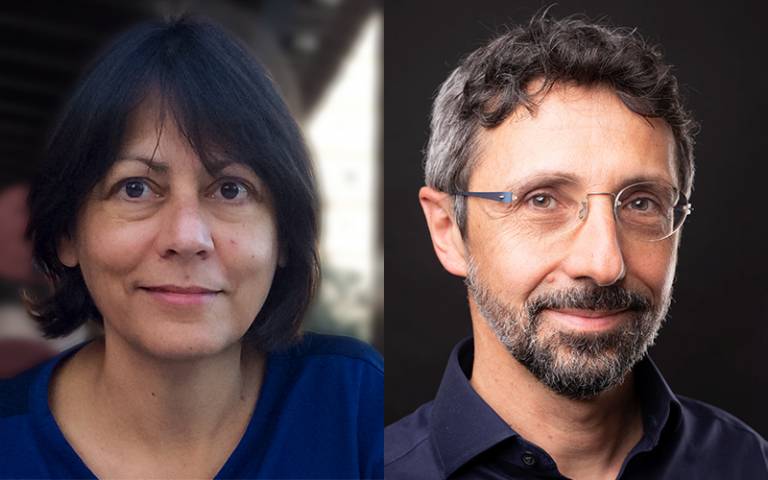Two UCL academics elected new Fellows of the Royal Society
10 May 2022
In recognition for their outstanding contributions to science, UCL Professor Yvonne Rogers and Honorary Professor Roberto Maiolino have been elected Fellows of the Royal Society.

They are among the 62 eminent scientists selected in recognition of their exceptional contributions to science.
Fellowship of the Royal Society is composed of the most distinguished scientists, technologists and engineers from or living and working in the UK and the Commonwealth, alongside a shorter list of Foreign Members.
Professor Rogers is director of UCL Interaction Centre (UCLIC), housed jointly between the UCL Computer Science and UCL Psychology & Language Sciences, and is Deputy Head of UCL Computer Science. She is a pioneer of Human-Computer Interaction and one of the leaders who created the field of Ubiquitous Computing. In this field, her research is concerned with augmenting human activities with a diversity of computational technologies. She investigates, invents, and designs interactive technologies that enhance life through extending learning, everyday and work activities.
She commented: “I am so excited by the news. It means so much to be recognised by this esteemed society for my contributions to computer science. It is fantastic news, too, for my field of human-computer interaction.”
Professor Maiolino, Professor of Experimental Astrophysics at the University of Cambridge and Director of the Kavli Institute for Cosmology, is an Honorary Professor in UCL Physics & Astronomy.
He studies the formation of galaxies using observations collected at some of the largest ground-based and space telescopes. He has obtained key results on the interplay between the evolution of galaxies and the supermassive black holes at their centres. He has also investigated the enrichment of chemical elements across the cosmic epochs, as well as the origin and nature of dust particles in the early universe.
Sir Adrian Smith, President of the Royal Society said: “It is an honour to welcome so many outstanding researchers from around the world into the Fellowship of the Royal Society.
“Through their careers so far, these researchers have helped further our understanding of human disease, biodiversity loss and the origins of the universe. I am also pleased to see so many new Fellows working in areas likely to have a transformative impact on our society over this century, from new materials and energy technologies to synthetic biology and artificial intelligence. I look forward to seeing what great things they will achieve in the years ahead.”
Links
- Royal Society announcement
- Professor Yvonne Rogers’s academic profile
- UCL Interaction Centre
- UCL Computer Science
- Professor Roberto Maiolino’s academic profile
- UCL Physics & Astronomy
 Close
Close

